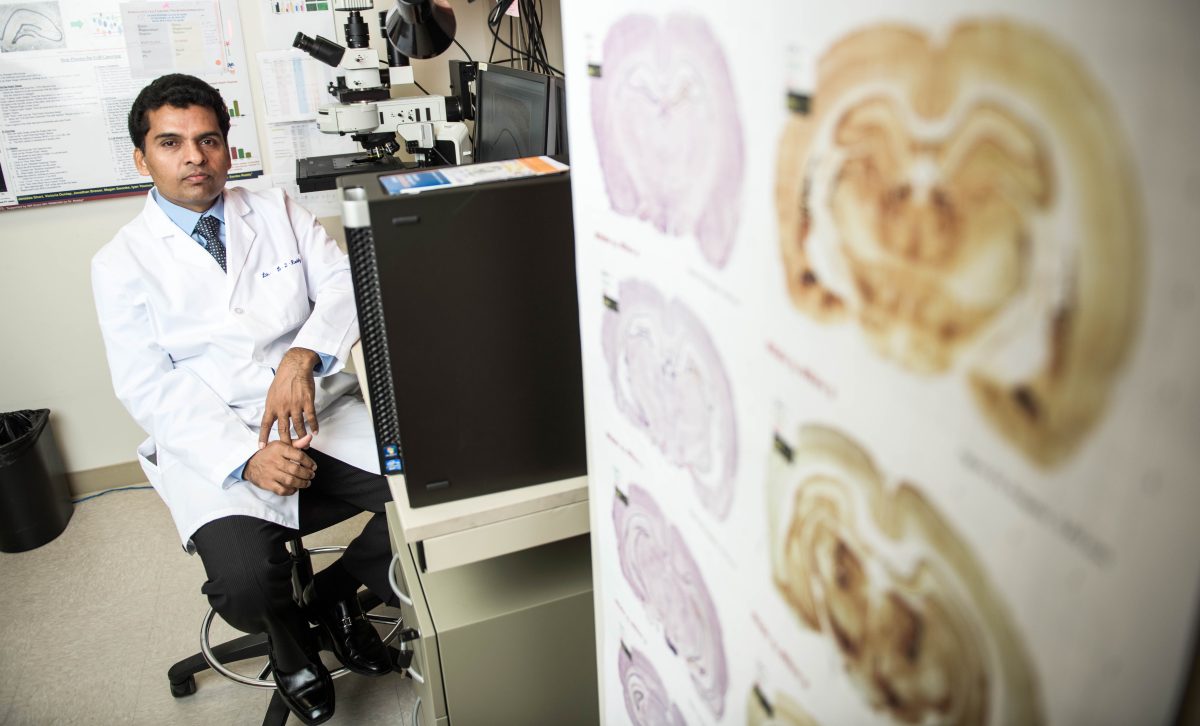After nearly two decades of research, a drug created by Texas A&M College of Medicine professor Samba Reddy and his team to treat postpartum depression was approved in March by the Food and Drug Administration.
Brexanolone, sold under the name Zulresso, is given intravenously to women in the hospital, requiring them to stay for about three days. In addition to interfering with the bond between mother and child, postpartum depression can lead to life-threatening situations in which a woman who has recently given birth may have thoughts of harming themself or their child. Zulresso is the first neurosteroid to ever treat this condition and may have uses for other disorders such as anxiety.
Reddy said his research lab has been focused on the group of neurosteroid compounds which protect the brain from conditions like distress or injury.
“I choose to focus [on the] female brain because these neurosteroids fluctuate with the menstrual cycle,” Reddy said. “[The premenstrual] period has been associated with low levels of neurosteroids in the brain.”
Bryan Clossen, senior neuroscientist at Stream Biomedical and Class of 2010, was a Ph.D. student in Reddy’s lab, where he worked on neurosteroids in relation to the drug. He said this drug is a great first step in treating postpartum depression, though it has other applications as well.
“I was actually a little surprised to see it approved for postpartum depression first because I think it has a lot of application in anxiety and also in other disorders that include hyperactivity or hyperexcitability, like epilepsy and some other conditions like that,” Clossen said.
Neurosteroids are a safe alternative to other treatments for depression and epilepsy, Clossen said. However, giving them to patients and helping them remain effective in the body can be challenging.
“One of the reasons it’s kind of hard to give to people is your body is so good at metabolizing it, it has a very short half-life, which is another reason why we did so much work in designing new drugs and new versions of these compounds,” Clossen said. “They can be used either in pill form or [in other forms] that have a longer half-life so they don’t require a continuous infusion like this first drug does.”
Reddy said the research team will likely be able to make the neurosteroid available in the form of a pill in the near future.
Postdoctoral fellow Chase Carver worked in Reddy’s lab for five years and said there is a need to look into the sex-specific effects of drugs. This neurosteroid is an example of what that looks like.
“Something that’s been getting a lot of traction in science recently is repurposing drugs that are already FDA-approved, already determined to be safe, and finding new purposes, new mechanisms where they can be used for neurological disorders,” Carver said.
Carver said the future for these kinds of drugs will be to help target specific patient groups, such as women with postpartum depression, who can benefit from effects that were not previously studied. In this case, understanding the levels of progesterone that are naturally occurring in women had an effect on the research and implementation of this drug.
“Drugs that can specifically be targeted toward a subset of a population,” Carver said. “That’s really exciting because we can narrow in and put a lot of focus on the effects of those drugs.”
Fighting postpartum depression
April 17, 2019
Photo by Courtesy of Texas A&M University Health Science Center
Samba Reddy and his research team created the first FDA approved postpartum depression neurosteroid medication.
Donate to The Battalion
Your donation will support the student journalists of Texas A&M University - College Station. Your contribution will allow us to purchase equipment and cover our annual website hosting costs.




















